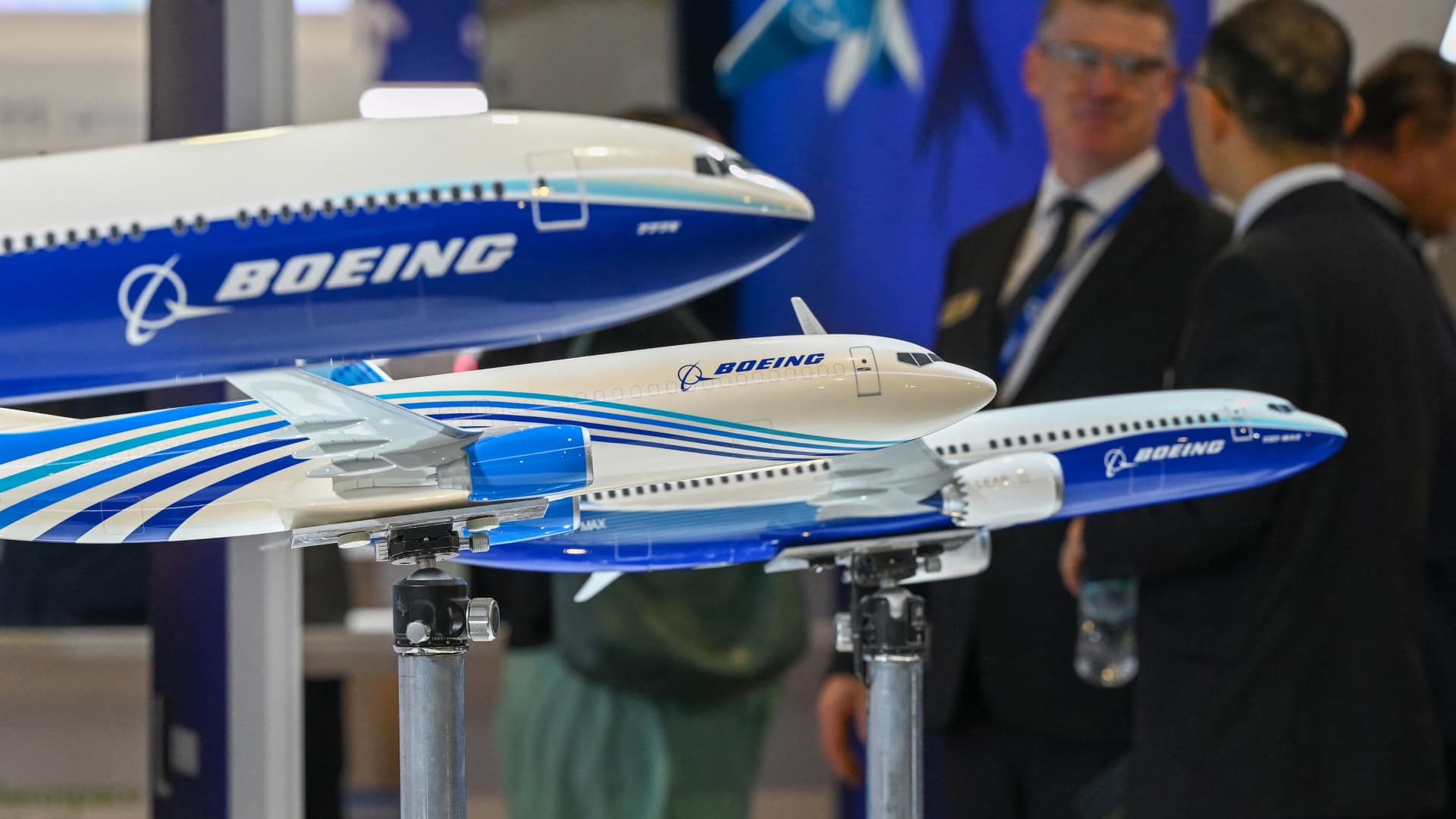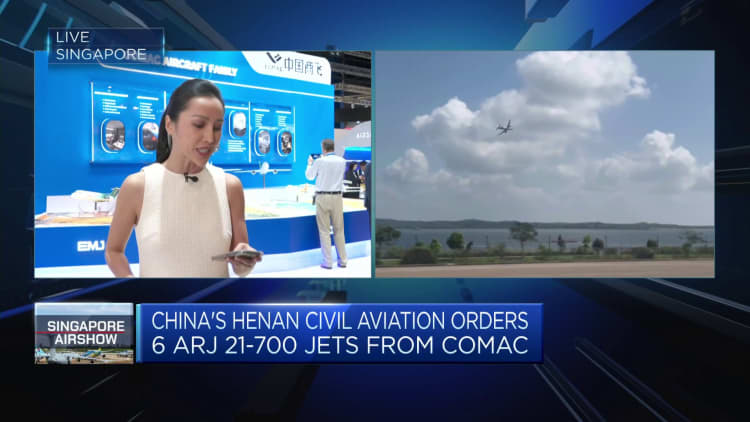
Miniature models of Boeing commercial airplanes displayed at the Singapore Airshow in Singapore on February 20, 2024.
Roslan Rahman | Afp | Getty Images
SINGAPORE — Boeing touted its 737 Max aircraft as “the safest airplane” and said China’s latest domestic jetliner Comac C919 is similar to offerings by Airbus and Boeing that are already in the market.
Dave Schulte, Boeing’s commercial marketing managing director for Asia-Pacific acknowledged that the 737 Max 9 — which currently faces questions over a midair blowout — “is by far the most scrutinized airplane in the world, in the history of aviation.”
However, he insisted it was “the safest airplane that can be out there today.”
Speaking to media on the sidelines of the Singapore Airshow, Schulte said he flew on the 737 Max aircraft with his family the last week, and pointed out that the plane was “quite full.”
A midflight blowout of a fuselage panel on one of Boeing’s 737 Max 9 operated by Alaska Airlines earlier this year raised concerns about safety after loose bolts were found during preliminary inspections. In January, Boeing recorded a decline in aircraft orders and deliveries.
On Wednesday, Boeing announced it will be replacing the head of its 737 Max program.
Boeing did not bring any commercial planes to the Singapore Airshow. Instead, it is showcasing its defense capabilities, featuring many of its fighter jets, including the B-52 Stratofortress which will participate in the U.S. Air Force aerial display.
The company also had a cabin display of its wide-body 777X passenger plane at the event, which it claims is the world’s largest twin-engine jet. But deliveries for the aircraft, expected from 2025, have been plagued with delays.
China competition not imminent
Without Boeing’s commercial jets at the Singapore Airshow, all eyes were on passenger planes by Airbus and China’s domestic jetliner Comac C919.
The Comac C919, which industry experts said could shake things up for the long-standing commercial aviation industry duopoly by Boeing and Airbus, is still in the early stages of entering the race.
“It’s still early days to know if Comac can shake up the duopoly. We are not likely to see a C919 overseas order of significance in the near term,” Brendan Sobie of Sobie Aviation told CNBC.
Comac on Tuesday signed a deal with China’s Tibet Airlines and finalized an order for 40 C919 and 10 ARJ21 jets.
That same day, Henan Civil Aviation Development and Investment Group, a Chinese state-backed organization, also signed a deal for six models of the Comac ARJ21.
The ARJ21 jet is a short to medium range turbofan plane which can fly shorter distances and is used for regional flights.

The Commercial Aircraft Corporation of China (Comac) developed the narrow-body C919 to compete with Boeing’s 737 and the Airbus 320.
“It’s a similar sized airplane that both Boeing and Airbus produce,” Boeing’s Schulte said, adding that airlines in Southeast Asia may consider it. However, he warned that Comac will also have to overcome supply disruptions similar to those faced by both Boeing and Airbus.
“But for sure, it’s an airplane that is included in our long term forecast,” Schulte said, referring to the C919.
As the aviation and airline industry moves on from the pandemic, a ramp-up in production by both Boeing and Airbus have pressured suppliers that are struggling to meet the growing demand for parts.
Miniature models of Boeing commercial airplanes are displayed at the Singapore Airshow in Singapore on February 20, 2024.
Roslan Rahman | Afp | Getty Images
Christian Scherer, chief executive officer of Airbus’s aircraft commercial business said earlier this week that Comac’s C919 is “not going to rock the boat in particular.”
He said the C919 “looks a bit like an Airbus narrow body,” while also noting the plane is “not very different” from what Airbus and Boeing already have.
